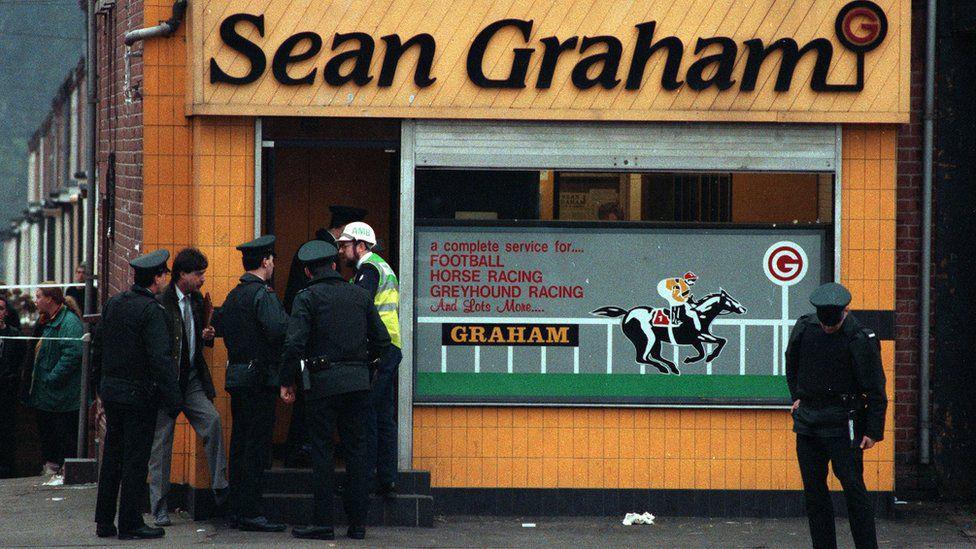Ombudsman report into loyalist murders 'deeply disturbing', says Taoiseach

Taoiseach Mícheál Martin said the report's findings were “deeply disturbing”
- Published
A Police Ombudsman report into links between members of the security forces and loyalist murders in Northern Ireland is “deeply disturbing” and “simply appalling", the taoiseach (Irish prime minister) has said.
In her report, Marie Anderson identified “collusive behaviour” on the part of the police in her investigation into 11 murders.
Mícheál Martin said the report highlighted the need for a “comprehensive framework” to deal with the past.
He accused the British government of “too much foot-dragging” in honouring agreements entered into.

Five people were killed and several others were injured in the 1992 gun attack on a Belfast bookmakers shop
In the Dáil (lower house of parliament) on Wednesday, Mr Martin said he did not take an amnesty as a likelihood and repeated that his government could not accept any unilateral actions on legacy.
He said any such action would be a breach of the Good Friday and subsequent agreements.
The taoiseach made his remarks in response to a question from the Aontú leader, Peadar Tobín, who used Dáil privilege to name the soldier known as Soldier F.
Soldier F was charged with the murders of William McKinney and James Wray, plus five counts of attempted murder for his actions on Bloody Sunday in 1972 when 13 people were shot dead by paratroopers.